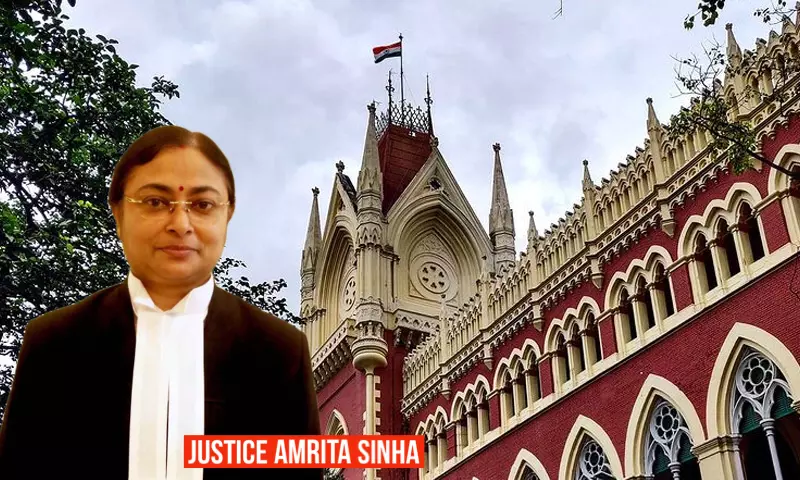Punjab & Haryana HC CJ Sheel Nagu Reassigns Reserved Case To Himself Citing ‘Oral And Written’ Complaint

Punjab and Haryana High Court Chief Justice, citing a ‘written and oral’ complaint, reassigned a case listed for order to himself, invoking his power as master of the roster to protect public trust in the judiciary.
Chief Justice Sheel Nagu of the Punjab and Haryana High Court has reassigned a corruption case on which judgment had already been reserved from another judge’s bench to himself. He cited “oral and written” complaints he received as the reason for this decision.
In an order issued on Friday, Chief Justice Nagu reaffirmed the Chief Justice’s administrative control over court rosters and the authority to reassign cases.
He explained that the transfer was necessary to address the complaints and to expedite the resolution of the case, stating,
“The receipt of complaint, (oral as well as written)… which impelled the Chief Justice to requisition the record of this case from the said Single Bench and constitute another Single Bench comprising of Chief Justice on 12.05.2025 at 03.30 P.M. to give quietus to the complaint, draw curtains to the controversy and save the institution and the concerned Judge from any further embarrassment by deciding the case as expeditiously as possible.”
Justice Mahabir Singh Sindhu had reserved the case for a verdict on May 2.
This move reignites discussions on the ‘master of roster’ principle, which grants the Chief Justice, as the administrative head, the power to assign cases.
Chief Justice Nagu emphasized in his order,
“Powers of Chief Justice in his capacity as Master of the Roster are wide, pervading and plenary. These powers are circumscribed by only one consideration i.e. to protect the interest of the institution from being tarnished and to uphold the public trust reposed in judiciary by litigants.”
The case, Roop Bansal vs State of Haryana and others, seeks to quash a corruption FIR dated April 17. Initially filed in January 2025, it has undergone several changes.
Also Read: Lok Sabha To Punjab & Haryana HC : “MP Amritpal Singh Granted a 54-Day Leave”
Justice N. S. Shekhawat recused himself on January 14, and the petitioner’s counsel later withdrew it before Justice Manjari Nehru Kaul in February. After being re-filed in April, the case was assigned to Justice Sindhu.
After arguments concluded and the order was reserved, Chief Justice Nagu reassigned the case on May 10 due to the complaints and scheduled it for rehearing on May 12. It is now set to be heard by Chief Justice Nagu’s bench on May 26, with the Enforcement Directorate involved due to connections with ongoing PMLA proceedings.
The petitioner’s legal team, including senior advocates Mukul Rohatgi, Puneet Bali, and Rakesh Nehra, objected to the reassignment, arguing that a matter reserved by one bench should not be transferred to another, including the Chief Justice’s bench.
They referenced a 2018 ruling in Shanti Bhushan vs Supreme Court of India regarding the master of roster issue.
In response, Chief Justice Nagu dismissed their arguments, reinforcing his administrative authority and citing precedents. He referred to a 2015 full bench decision from the Allahabad High Court, stating that if the Chief Justice believes a case should be heard by another bench, it necessitates a formal withdrawal of the case after careful consideration.
He added,
“If an exception to this power is accepted by excluding those cases which are heard and reserved, then the object behind this power will stand defeated.”
The order also addressed the broader issue of institutional credibility, noting the potential damage to the reputation of the bench that initially reserved the case, as well as the overall trust in the judicial system.
He stated,
“In such situations, the reputation of the Bench which ‘heard and reserved’ the case to be withdrawn is at stake. On the other hand is the overall reputation of the institution and public trust of people at large in the judicial system.”
Chief Justice Nagu emphasized the urgency of the situation, pointing out that the complaints were received shortly after the case was reserved, leaving little time for action.
He stated,
“In the attending factual scenario, if the Chief Justice had not taken preventive emergent steps as aforesaid, then the Chief Justice would be failing in his duty and belying the oath taken by him.”
Referencing Anil Rai vs State of Bihar (2001), he noted that if a judgment is not delivered within six months, either party can request a transfer for a fresh hearing.
He concluded that the only viable response was to withdraw the case from Justice Sindhu’s bench for reassignment.





